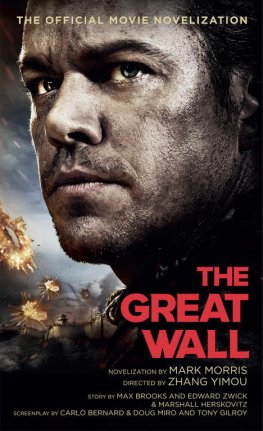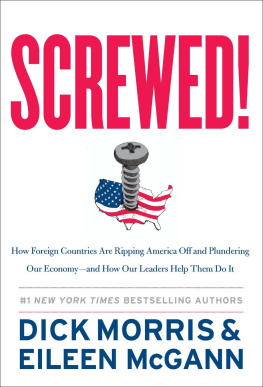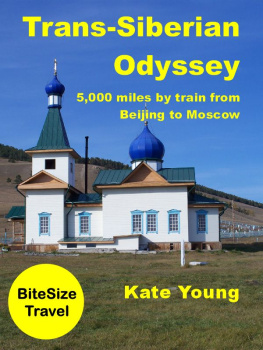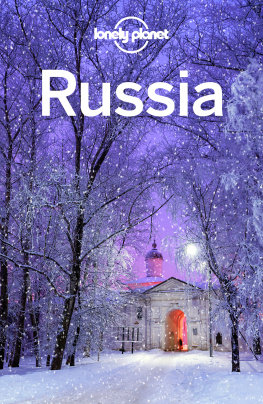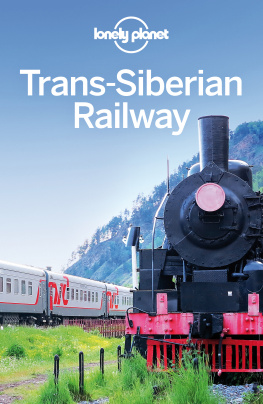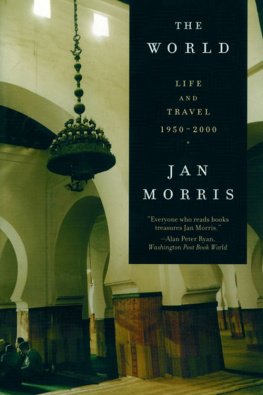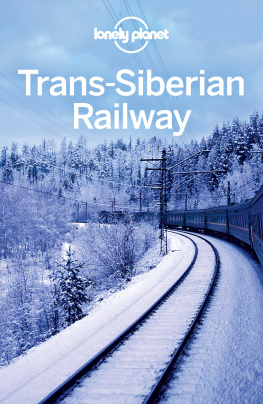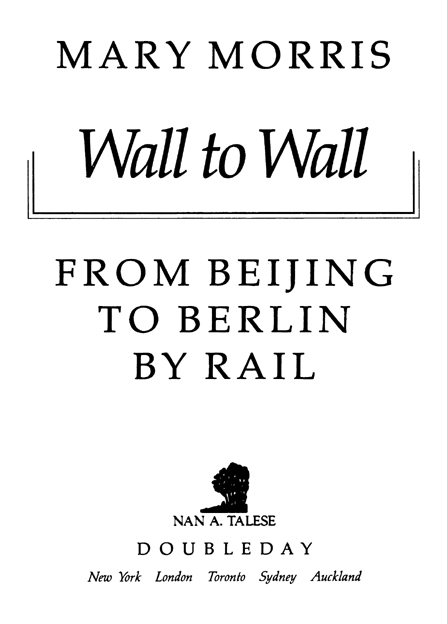BY MARY MORRIS
Vanishing Animals
and Other Stories
Crossroads
The Bus of Dreams
Nothing to Declare:
Memoirs of a Woman Traveling Alone
The Waiting Room
Wall to Wall:
From Beijing to Berlin by Rail

PUBLISHED BY DOUBLEDAY
a division of Bantam Doubleday Dell Publishing Group, Inc.
666 Fifth Avenue, New York, New York 10103
D OUBLEDAY and the portrayal of an anchor
with a dolphin are trademarks of Doubleday,
a division of Bantam Doubleday Dell Publishing Group, Inc.
Grateful acknowledgment is made to the following for permission to quote from copyrighted material:
The Mending Wall by Robert Frost, from The Poetry of Robert Frost, edited by Edward Connery Lathem. Copyright 1930, 1939, 1969 by Holt, Rinehart & Winston, Inc. Copyright 1958 by Robert Frost. Copyright 1967 by Lesley Frost Ballantine. Reprinted by permission of Henry Holt & Company, Inc.
Questions of Travel by Elizabeth Bishop, from The Complete Poems 19271979 by Elizabeth Bishop. Copyright 1956 by Elizabeth Bishop. Copyright 1979, 1983 by Alice Helen Methfessel. Reprinted by permission of Farrar, Straus & Giroux, Inc.
The Last Supper by Osip Mandelstam, from Osip Mandelstam: Selected Poems, translated by Clarence Brown and W. S. Merwin. Copyright 1973 by Clarence Brown and W. S. Merwin. Reprinted by permission of Atheneum Publishers, an imprint of Macmillan Publishing Company.
Library of Congress Cataloging-in-Publication Data
Morris, Mary
Wall to wall: from Beijing to Berlin by rail/Mary Morris.1st ed.
p. cm.
1. Morris, MaryJourneys. 2. Novelists, American20th
centuryJourneys. 3. Railroad travel. I. Title
PS3563.O87445Z478 1991
818.5403dc20
[B] 90-21848
eISBN: 978-0-307-80999-5
Copyright 1991 by Mary Morris
All Rights Reserved
v3.1_r1
THIS BOOK is dedicated to the people of China, the Soviet Union, Eastern Europe and elsewhere who have struggled to bring down walls; to my family, living and dead, for the stories they told; and to my husband, Larry OConnor, for all the obvious reasons; and to Kate so that one day she may understand.
Contents
ACKNOWLEDGMENTS
MANY PEOPLE helped me to write this book. I am very grateful to my friends and colleagues who provided me with sources, materials, and careful readings, including Michael Kimmel, Annette Jaffee, Robert K. Massie, Susan Eve Jahoda, Martha P. Trachtenberg for her research which proved invaluable, Samuel Zimberoff for his stories, and Bessie Malkov and my parents, Sol and Rosalie Morris, for sharing with me what they remembered. I am grateful to my agent Amanda Urban for her help, Nancy Adler for her logistical support in New York while I was writing from afar, and Cristina Corsini of Distinctive Travel for her assistance with the travel arrangements. And I am most grateful to the librarians at the Santa Fe Public Library who provided me with innumerable books and let me keep them for extended periods of time.
I want to thank my editor, Nan A. Talese, as always for her editorial insights and general support, and Larry OConnor, for his concern and encouragement, for his careful editing, spelling expertise, and general nurturing during the writing of this book.
And finally I want to thank the many people I met on this journeyon the trains, in restaurants, through various contactswho spoke with me openly, often at great risk to themselves, who trusted me not to betray them, and who gave me information I could not have gotten by any other means. In most cases I have disguised these individuals, even though this may no longer be necessary. I am grateful for their courage and I hope that this work will in no way betray their trust.
AUTHORS NOTE
SINCE I JOURNEYED to China, the Soviet Union, and Germany in 1986, much has changed. When I traveled, democracy and free enterprise were being spoken of openly in China, glasnost and perestroika were just beginning to grow current in the U.S.S.R., although Sakharov still languished in Gorky and the Berlin Wall was quite intact. Since then, there have been the crackdown of the democracy movement and the abuses of human rights in China, the remarkable altering of the Soviet state, the opening of the Berlin Wall. I have been deeply moved by many of the recent developments and deeply saddened by others. As some walls have come down, others, perhaps more solid than before, have gone up. While this work is a travel memoir, it is also a travel history. But I am not a historian nor a political theorist. What I have written about in these pages is what I witnessed in 1986, a time when these countries were on the brink of promise and change. The world I saw then is not the same world now, but the hints, the suggestions of what was to come, were already in the air.
Before I built a wall Id ask to know
What I was walling in or walling out.
And to whom I was like to give offense.
Something there is that doesnt love a wall.
That wants it down.
R OBERT F ROST , Mending Wall
FROM THE OUTSIDE, on a tree-lined residential street of Beijing, the Mongolian Embassy didnt appear as if it would present any problems. It stood serene with its brown stucco faade, the color of the desert I longed to crossa low wall of scrub pine and pink gravel driveway, an open gate, reminiscent of an Italian villa. The moon-faced girl with the sleek black hair and a reddish complexion greeted me at the gate with a faint look of recognition. This was my third visit.
The first time I had come to this gate was just as she was locking it three weeks before. Id grasped the bars like a monkey, pleading silently with her. The embassy was open for visas only a few hours a week. In order to cross Mongolia on the Trans-Siberian Express as I intended to do, one needed a Mongolian transit visa, and the only place in the world to procure one for the traveler wandering with no tour guide to show the way was at the gate where I stood. The first time, I had been sent away and told to return in two days time. I had returned obediently on schedule and was informed that I had to leave my passport for twenty-four hours, which was impossible because the next morning I was to depart at dawn for Chengdu.
I had spent several weeks traveling through a steamy Szechwan Province where I viewed disconsolate pandas in dingy concrete-and-steel cages, flying to Tibet where I had experienced the wonders of the Jonking Temple, sailed through the massive arches of the Yangtze gorges, dined on delicacies and touched silks in Shanghai, all the time thinking that the one thing I truly wanted might elude methe stamp on my passport that would enable me to enter the land of my Russian ancestors by rail.
I wasnt even sure why I needed this visa. I had been told that they lock the train at Ulan Bator so that in transit passengers cannot suddenly decide to disembark, though later I learned this was not true. But the fifteen dollars per person they charge for a transit visa apparently provides a substantial income to the Mongolian government, which is the true reason for its requirement.



